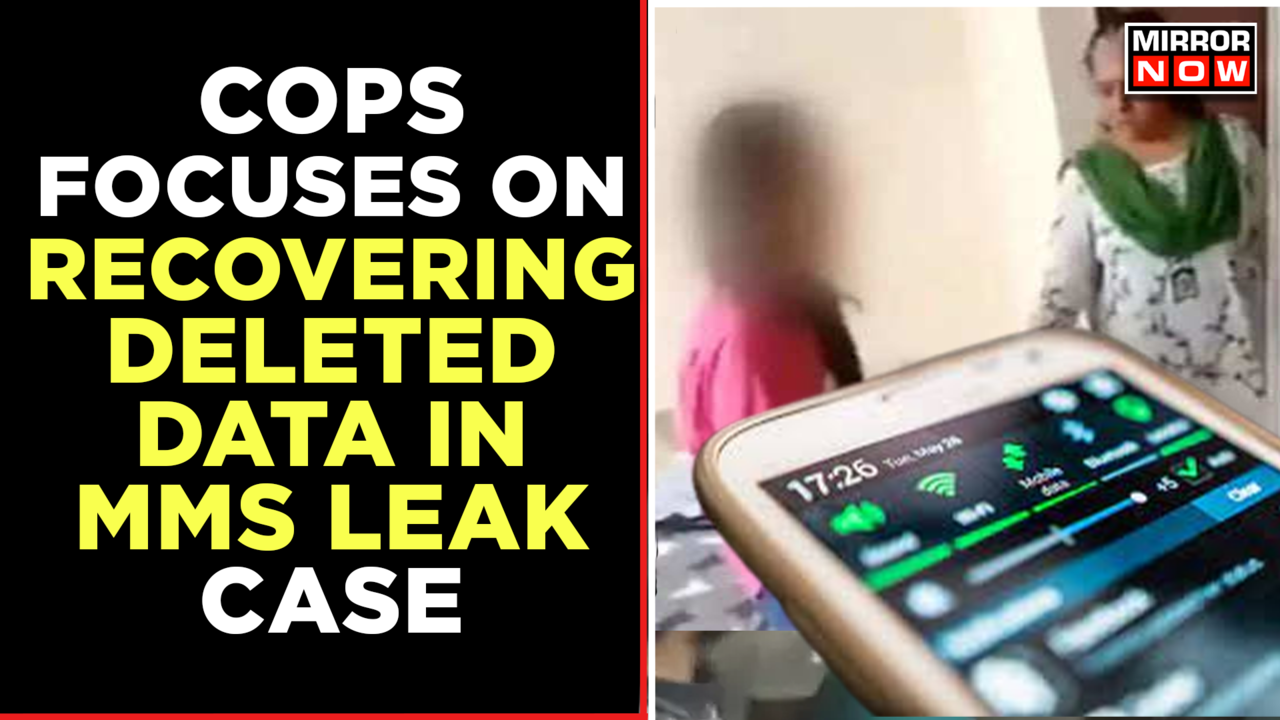Alright folks, let’s get into something that’s been making waves across the digital world: the MMS leak phenomenon. Whether you’re tech-savvy or just casually browsing, chances are you’ve come across the term at least once. But what exactly does it mean? And why is it such a big deal? Let’s dive deep into this topic because trust me, there’s more to it than meets the eye.
Now, before we get all fancy with the details, let’s break it down. MMS stands for Multimedia Messaging Service, and it’s essentially how we send pictures, videos, and other media files through our phones. But when we talk about "MMS leaks," we're stepping into a whole different territory. These aren’t just innocent messages gone astray; they’re often sensitive or private content that gets exposed without consent. Yikes, right?
As we explore this phenomenon, we’ll uncover the nitty-gritty details of how these leaks happen, why they’re so concerning, and what you can do to protect yourself. So buckle up, because we’re about to take a deep dive into the world of MMS leaks, and trust me, it’s not pretty but it’s crucial knowledge for anyone with a smartphone.
Read also:Exploring The Roots Unveiling The Story Of Kat Grahams Parents
Table of Contents
- What is MMS?
- MMS Leaks 101: Understanding the Basics
- Causes Behind MMS Leaks
- The Impact on Privacy and Security
- Legal Implications of MMS Leaks
- Prevention Tips to Stay Safe
- Famous Cases of MMS Leaks
- Emerging Technology and Its Role
- Ethical Considerations in Handling Leaks
- Conclusion: What’s Next for MMS Leaks?
What is MMS? Breaking It Down
Alright, let’s start with the basics. MMS, as mentioned earlier, stands for Multimedia Messaging Service. Think of it like the next level of SMS. While SMS is all about sending plain text messages, MMS allows you to attach richer content—like photos, videos, audio clips, and even documents. Pretty cool, right? But with great power comes great responsibility, and that’s where things can go south.
Now, here’s the thing: MMS messages are stored on servers run by your carrier. That means, technically, they’re not entirely private. And if there’s a breach or misconfiguration on those servers, well, that’s when the trouble starts. Your private moments could end up in the wrong hands faster than you can say "selfie."
Why MMS Matters in Today’s Digital Age
In today’s hyper-connected world, MMS plays a huge role in how we communicate. Whether it’s sharing cute pics of our pets or sending important documents to coworkers, we rely on it daily. But as we’ve seen time and time again, convenience often comes at a cost. The same technology that makes our lives easier can also make us vulnerable if not handled correctly.
MMS Leaks 101: Understanding the Basics
So, what exactly happens during an MMS leak? Well, imagine this: you send a private picture to someone special, thinking it’s just between the two of you. But then, BAM! Someone else gets hold of it, and suddenly it’s all over social media. That’s the nightmare scenario that no one wants to face.
MMS leaks typically happen due to vulnerabilities in carrier systems, hacking attempts, or even accidental misconfigurations. And once that data is out there, it’s almost impossible to fully erase it. It’s like spilling milk—you can clean up some of it, but there’s always going to be a stain left behind.
Common Scenarios Leading to Leaks
- Hackers exploiting weak security protocols
- Human error in configuring server settings
- Unintended exposure through third-party apps
- Insider threats from employees with access to sensitive data
Causes Behind MMS Leaks
Let’s talk about the root causes of these leaks. First off, many carriers don’t prioritize security as much as they should. They’re more focused on delivering fast and reliable service, which leaves gaps that bad actors can exploit. Plus, with the rise of cloud storage and third-party integrations, the attack surface just keeps expanding.
Read also:Exploring The World Of Ullu Web Series A Comprehensive Guide To Ullu Web Series Names
Another big factor is user behavior. We often click on suspicious links or download sketchy apps without thinking twice. And let’s be real, who reads those long Terms of Service agreements? Probably nobody. But those little details can come back to bite us when we least expect it.
How Carriers Contribute to the Problem
Carriers play a significant role in this whole mess. They’re the ones responsible for storing and delivering our messages, so they need to have rock-solid security measures in place. Unfortunately, that’s not always the case. Some carriers still use outdated systems that are ripe for exploitation. Others cut corners on security to save costs, which is a recipe for disaster.
The Impact on Privacy and Security
When an MMS leak occurs, the consequences can be devastating. For individuals, it can lead to embarrassment, harassment, or even identity theft. Businesses, on the other hand, risk losing sensitive information that could harm their reputation or bottom line. And let’s not forget the psychological toll it takes on victims, who often feel violated and powerless.
Privacy is a fundamental right, and when it’s compromised, it shakes the very foundation of trust we have in digital communication. That’s why it’s crucial for both users and service providers to take proactive steps to safeguard our data.
Real-Life Consequences of MMS Leaks
- Damage to personal relationships
- Financial losses due to identity theft
- Reputation damage for businesses and individuals
- Psychological trauma for victims
Legal Implications of MMS Leaks
From a legal standpoint, MMS leaks can open up a whole can of worms. Depending on the jurisdiction, there may be laws in place to protect against unauthorized sharing of personal data. For example, the GDPR in Europe imposes heavy fines on companies that fail to protect user data. In the US, there are various state laws that address similar issues.
But here’s the catch: enforcement can be tricky, especially when the perpetrators are located in different countries. And even if justice is served, the damage is often already done. That’s why prevention is key—because once that genie is out of the bottle, it’s nearly impossible to put it back in.
Key Legal Frameworks to Know
- General Data Protection Regulation (GDPR)
- California Consumer Privacy Act (CCPA)
- Computer Fraud and Abuse Act (CFAA)
- Wiretap Act
Prevention Tips to Stay Safe
Now, let’s talk about what you can do to protect yourself. First and foremost, be mindful of what you share. If you wouldn’t want it plastered on a billboard, don’t send it via MMS. Simple as that. Additionally, use strong passwords and enable two-factor authentication wherever possible. It’s like putting a lock on your digital front door.
Another good practice is to regularly update your apps and operating system. Those pesky updates often contain critical security patches that can prevent breaches. And if you’re really paranoid (which isn’t a bad thing in this case), consider using encrypted messaging apps like Signal or WhatsApp.
Top Security Practices for Users
- Avoid clicking on suspicious links
- Use strong, unique passwords
- Enable two-factor authentication
- Regularly update your software
- Use encrypted messaging apps
Famous Cases of MMS Leaks
Throughout history, there have been some high-profile MMS leak cases that have grabbed headlines worldwide. One notable example is the "Celebgate" scandal in 2014, where private photos of several celebrities were leaked online. It sparked a massive debate about digital privacy and led to increased scrutiny of cloud storage services.
Another infamous case involved a major telecom provider in Asia, where thousands of users’ MMS messages were exposed due to a server misconfiguration. The fallout was massive, with the company facing lawsuits and a significant drop in customer trust. It just goes to show how quickly things can spiral out of control.
Lessons Learned from Past Incidents
These cases highlight the importance of robust security measures and user awareness. They also underscore the need for accountability from service providers. If history has taught us anything, it’s that complacency is the enemy of privacy.
Emerging Technology and Its Role
As technology continues to evolve, so do the methods used to protect our data. Innovations like blockchain and artificial intelligence are being explored as potential solutions to prevent MMS leaks. Blockchain, for instance, offers a decentralized approach to data storage, making it harder for hackers to gain unauthorized access.
AI, on the other hand, can be used to detect and respond to threats in real-time. By analyzing patterns and behaviors, it can flag suspicious activity before it escalates into a full-blown breach. While these technologies are still in their infancy, they hold promise for a more secure future.
Potential Benefits of New Solutions
- Enhanced data encryption
- Real-time threat detection
- Decentralized storage options
- Improved user control over data
Ethical Considerations in Handling Leaks
Finally, let’s touch on the ethical side of things. When an MMS leak occurs, there’s often a moral obligation to handle the situation with care and respect for the victims involved. This means not sharing or distributing the content further, even if it’s tempting to do so out of curiosity. It’s about empathy and understanding the impact of our actions.
For service providers, it’s about transparency and accountability. If a breach happens, they should own up to it, inform their users promptly, and take steps to prevent it from happening again. Anything less would be a betrayal of trust.
Key Ethical Principles to Follow
- Respect for privacy and consent
- Transparency in communication
- Accountability for actions
- Empathy for victims
Conclusion: What’s Next for MMS Leaks?
Alright, we’ve covered a lot of ground here, so let’s recap. MMS leaks are a serious issue that affects individuals and businesses alike. They’re caused by a combination of factors, including weak security, user behavior, and systemic vulnerabilities. But the good news is, there are steps we can take to mitigate the risks and protect ourselves.
As technology evolves, so too must our approach to digital privacy. By staying informed, adopting best practices, and holding service providers accountable, we can create a safer online environment for everyone. So, what are you waiting for? Go forth and spread the word—because knowledge is power, and power is protection.
And hey, if you found this article helpful, don’t forget to share it with your friends and family. After all, the more people know, the safer we all are. Let’s keep the conversation going and work together to build a better, more secure digital world. Cheers!


